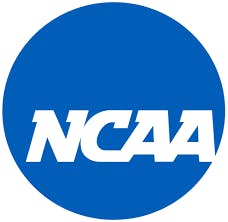On Monday, California Governor Gavin Newsom signed the “Fair Pay To Play Act”, a bill that would allow college athletes to be paid from endorsement deals. The law was many of years in the works and one of the most polarizing debates in sports.
Prospective college athletes will have to wait until 2023 for the bill to go into effect. Not only will the bill play a factor in where the top juniors and sophomores in high school choose to play but also could be an advantage for California schools.
In order to go to the National Football League, a player must be three years removed from high school – whether it be through junior college then NCAA or red-shirting one year and only playing two years of college ball.
New England Patriots Tight End Benjamin Watson gave his thoughts on the new bill in a Fox interview last week.

“We’re at a time where the NCAA is bringing in billions of dollars, we know that,” Watson said. “We know that these athletes get to play college sports at a high level… we also know that they are adults and as adults they should be given the rights that any other adult has. Which is to profit off their notoriety, profit off of their ability, whether that’s signing autographs or endorsement sales of jerseys. Obviously, college isn’t the NFL but when you look at coaches salaries, they rival the NFL and the revenue is rising towards the NFL – in my opinion it doesn’t ruin college football, it allows guys to capitalize.”
Watson’s remarks were in response to a Fox News reporter’s thought that superstar athletes could make money disproportionate to that of their teammates. Watson went on to say that there could be a minimum amount of money disbursed as a way for everyone to make something.
LeBron James chose to forego college and went straight to the National Basketball Association back in 2003. It’s a decision that he still does not regret considering the immediate money he got instead of going the college route.
“For sure I would have been one of those kids if I would have went to any one of these big-time schools,” James said. “Pretty much that ‘23’ jersey would have got sold all over the place with my name on the back, but everybody would have known the likeness. My body would have been on the NCAA basketball game 2004 and Schottenstein Center would have been sold out every single night, if I was there. Me and my mom, we didn’t have anything, and we wouldn’t have benefitted at all from it… the university would’ve been able to capitalize on everything.”
While the NBA has agreed to bypass its decade-old rule that requires athletes to go to school for one year before turning pro, the NFL still will still keep its rule in place.
California is the first state to pass a law to allow college athletes to make money off of endorsements, but many other states are expected to pass similar bills.
Evando Thompson can be reached at evando.thompson@student.shu.edu. Find him on Twitter @ethmps.





